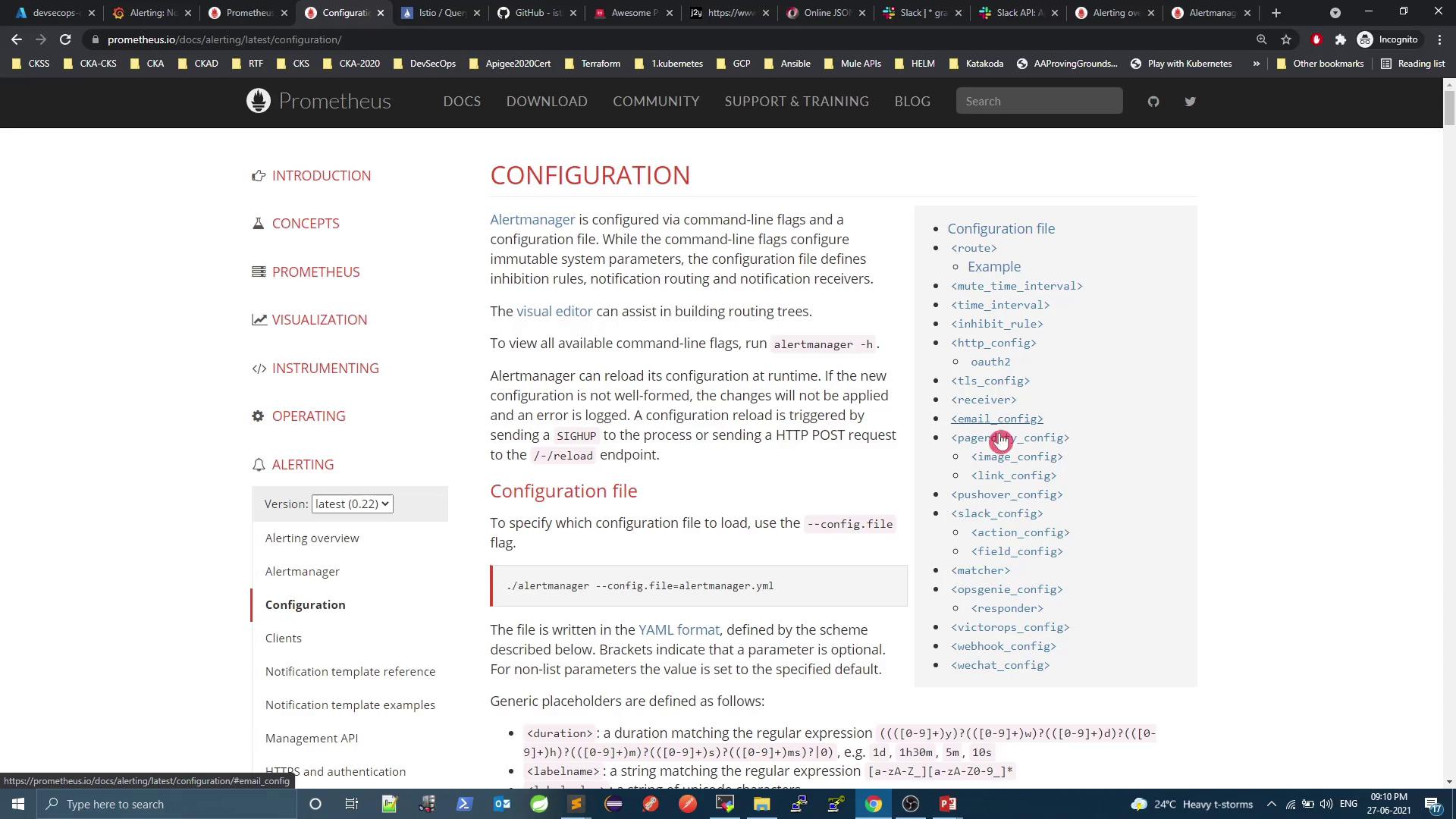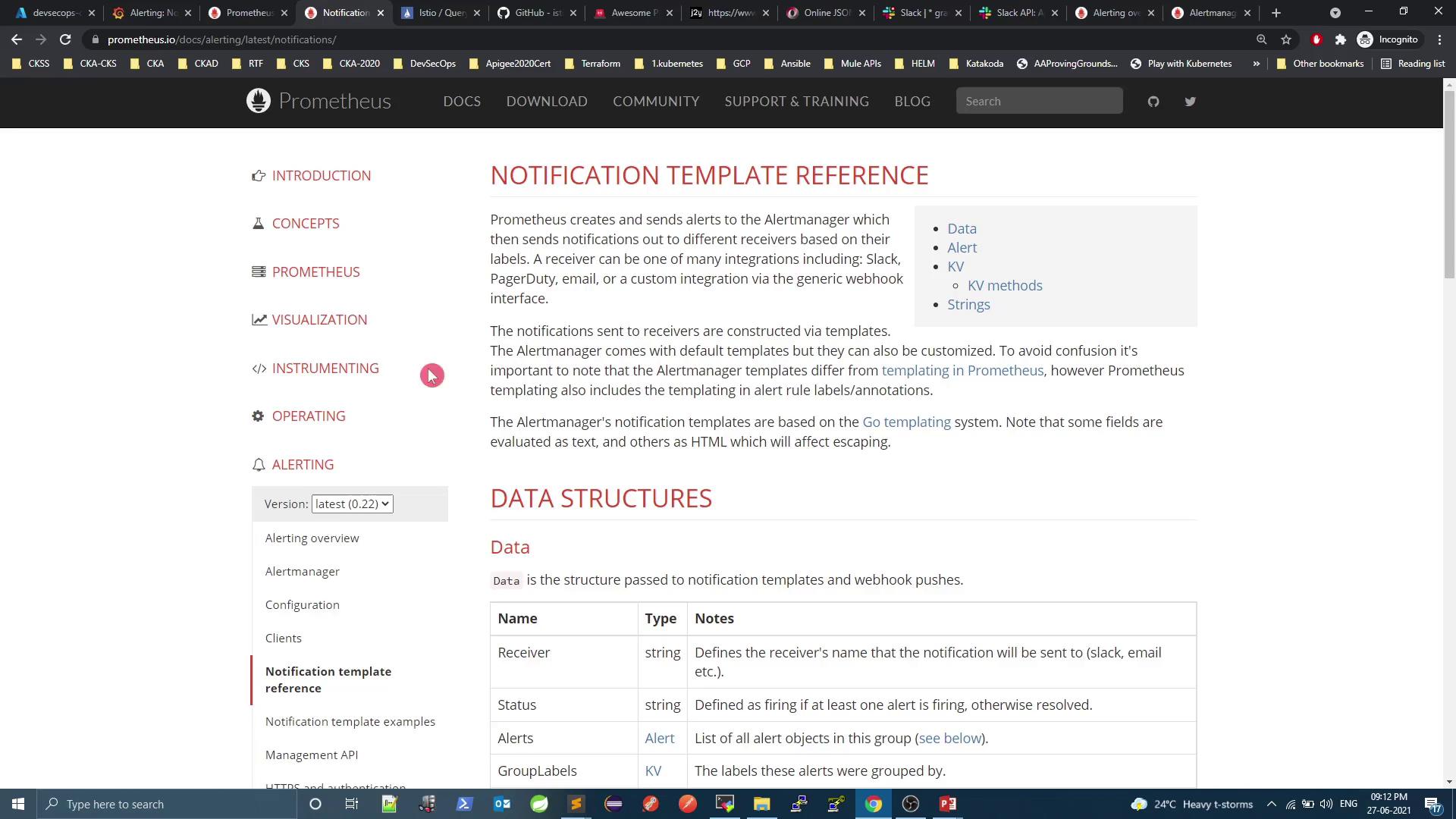Prerequisites
- A Linux VM with internet access
wget,tar, andcurlinstalled- A Slack workspace with permissions to create Incoming Webhooks
1. Download and Extract Alertmanager
Download the latest Alertmanager release (v0.22.2) and unpack it:2. Inspect the Default Configuration
Openalertmanager.yml to review the default routing and inhibition settings:
3. Start Alertmanager
Launch Alertmanager and confirm it listens on port9093:
http://<VM_PUBLIC_DNS>:9093 to verify the UI.
4. Configure Slack Notifications
To route alerts to Slack, updatealertmanager.yml with your workspace’s Incoming Webhook URL.
Refer to the official Prometheus Alertmanager documentation for complete configuration options and notification templates.


<YOUR_SLACK_WEBHOOK_URL> with your actual webhook URL and adjust the channel as needed:
Create a Slack Incoming Webhook
- In Slack, Create an App (e.g., “Prometheus Alerting”).
- Enable Incoming Webhooks and add a webhook to your target channel.
- Copy the generated URL and insert it in both
slack_api_urlandapi_urlabove. - Save
alertmanager.yml.
5. Reload Alertmanager Configuration
Reload without downtime by sending an HTTP POST:http://<VM_PUBLIC_DNS>:9093) to confirm your Slack receiver is active.
Next Steps
- Configure Prometheus to forward alerts to Alertmanager
- Define custom alerting rules in Prometheus
- Explore advanced routing and inhibition in Alertmanager